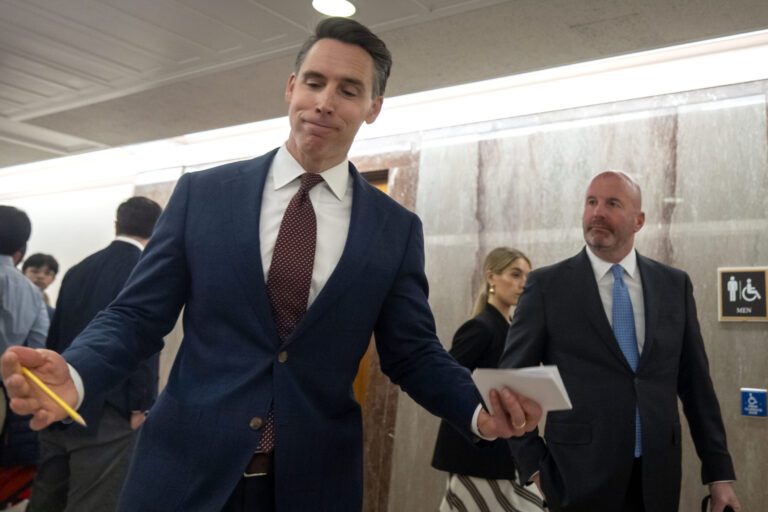Senator Hawley Proposes $2,400 Rebates Amid Trump Tariff Revenues
As the Trump administration continues to generate billions from global tariffs, Senator Josh Hawley has unveiled a proposal aimed at providing direct financial relief to American families. This proposed legislation could see households receiving significant rebate checks that reflect a portion of the tariff revenues.
Understanding the Proposal
Senator Hawley’s bill suggests that families could receive up to $600 for each adult and child, totaling $2,400 for a family of four. The aim is to redistribute some of the revenue gained from President Trump’s tariffs back to American households.
“Like President Trump proposed, my legislation would allow hard-working Americans to benefit from the wealth that Trump’s tariffs are returning to this country,” said Hawley. He stresses that this financial aid is critical for families struggling due to policies from the Biden administration.
Tariff Revenues and Economic Impact
According to the U.S. Department of the Treasury, revenues from tariffs introduced during the Trump administration reached approximately $28 billion as of July. This figure is expected to contribute to a total revenue goal of $300 billion annually.
- Projected revenue: $150 billion total for the year
- Current year revenue: Surpassing June’s total by $1 billion
However, potential price increases due to these tariffs raise concerns that any rebates might merely compensate for the extra costs incurred by consumers.
Eligibility Details for the Rebates
The bill mimics the criteria set during the COVID-19 pandemic stimulus checks, outlining specific income thresholds for eligibility:
- Families can receive $600 for each member.
- Households exceeding certain incomes will have their rebate amounts reduced:
- Joint filers earning $150,000 or more
- Single filers earning $112,500 or more
- Individual earners exceeding $75,000
If the tariff revenue outstrips forecasts, families could receive even more than the proposed $600 per person.
Broader Economic Concerns
While the proposed legislation aims to provide financial relief, critics, including Senate Democrats and economic analysts, have pointed out the negative implications of Trump-era tariffs:
- Increased costs passed onto consumers
- Tariffs described as indirect taxes affecting everyday items
A study by the Tax Foundation predicts that the tariffs could yield $2.5 trillion over the next decade. However, the average U.S. household may see an annual tax burden increase of nearly $1,300 this year and up to $1,700 in 2026.
Legislative Challenges Ahead
Senator Hawley’s proposed rebates face significant hurdles in Congress. Recently, Speaker Mike Johnson rejected a separate initiative for direct payouts to Americans, which proposed a “DOGE dividend." This approach aimed to distribute funds generated by efficiency savings in the government, but it fell short of its ambitious budget cut targets.
Conclusion: What’s Next?
As discussions continue, it remains to be seen whether Senator Hawley’s proposal will gain traction. In the political landscape of Capitol Hill, the interplay between economic relief for families and the broader implications of tariff policies will likely dominate debates.
For further insights on economic policies and financial assistance, explore resources such as the U.S. Treasury and the Tax Foundation.
By keeping a close eye on developments related to tariffs and economic relief efforts, American families can better navigate the financial landscape shaped by current policies.


